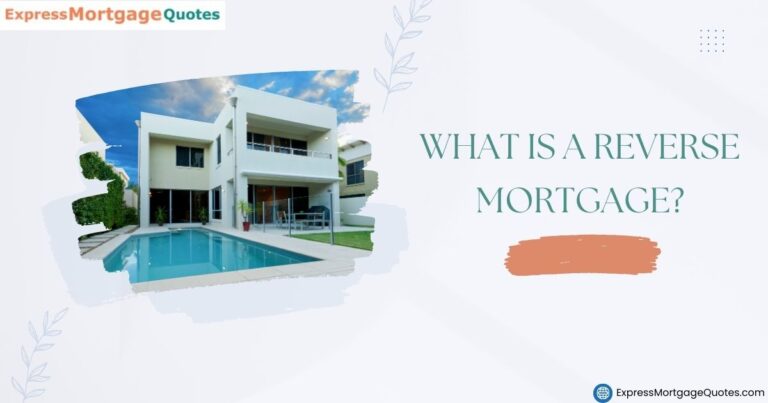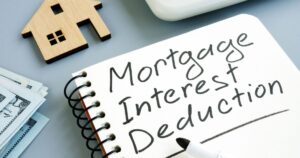What is a Reverse Mortgage?
Seniors (those 62 and up) can access the equity in their house with the help of a reverse mortgage, a special sort of loan that does not need them to sell the home or make regular mortgage payments. Instead, the loan is repaid when the borrower sells the home, passes away, or permanently moves out of the property. Reverse mortgages are typically offered as either Home Equity Conversion Mortgages (HECMs) or proprietary reverse mortgages.
One of the common types of a reverse mortgage is an FHA-insured Home Equity Conversion Mortgage (HECM). Proprietary reverse mortgages, which the government does not back, are offered by private companies and can be more expensive than HECMs.
How does a Reverse Mortgage work?
Using the value of your property as collateral for a loan is what a reverse mortgage is all about. The loan is based on your home’s value, age, and current interest rates. You can receive the loan in a lump sum, as a line of credit, or in the form of monthly payments.
No monthly payments are required for a reverse mortgage because the loan is repaid when the home is sold, the borrower passes away, or the property is permanently abandoned. The interest on the loan accumulates over time and the amount you owe increases over time. Loans are repaid out of the selling proceeds, leaving any leftover equity in the hands of the seller or their heirs.
It’s important to note that with a reverse mortgage, you still own the home and are responsible for paying property taxes, insurance, and maintaining the home. The loan may become due and payable if you do not keep up with these obligations.
When to consider a Reverse Mortgage?
Here are some scenarios when you may want to consider a reverse mortgage:
- You need extra income to supplement your retirement savings: If you have retired and are living on a fixed income, a reverse mortgage can provide extra income to help you pay for daily expenses or unexpected bills.
- You need to pay for medical expenses: If you have high medical bills, a reverse mortgage can provide you with the financial resources you need to cover these costs.
- You want to stay in your home: If you’re going to stay in your home for the rest of your life, a reverse mortgage can provide you with the financial resources you need.
- You want to downsize: You can utilize the money from a reverse mortgage to cover the costs of downsizing and anything else you need to take care of.
- You want to pay off existing debts: If you have outstanding debts, such as credit card balances or a second mortgage, a reverse mortgage can provide you with the funds you need.
Pros and Cons of a Reverse Mortgages
A reverse mortgage is a financial product designed for homeowners 62 years or older to access their home equity without selling the property or making monthly mortgage payments. It’s a loan that allows seniors to receive payments from the lender rather than making payments to the lender. It’s crucial for seniors to weigh the benefits and drawbacks of a reverse mortgage before making a final decision.
Pros:
- No Monthly Payments: One of the biggest advantages of a reverse mortgage is that the borrower is not required to make monthly payments. Instead, the lender provides payments to the borrower, which can help relieve financial stress for seniors who are on a fixed income.
- Access to Home Equity: With the help of a reverse mortgage, elderly homeowners can access their home’s equity without having to sell their property. This can provide a valuable income source for retirees struggling to make ends meet.
- Tax-Free Income: The proceeds from a reverse mortgage are not considered taxable income, so seniors can receive payments without affecting their tax liability.
- No Impact on Social Security or Medicare Benefits: Receiving payments from a reverse mortgage does not affect Social Security or Medicare benefits. This is important for seniors who rely on these programs to maintain their standard of living.
- Flexible Payment Options: Reverse mortgages offer a variety of payment options, including lump sum payments, monthly payments, lines of credit, or a combination of all three. This allows borrowers to tailor their loans to their individual needs and circumstances.
Cons:
- High Costs: Reverse mortgages are associated with high costs, including origination fees, closing costs, mortgage insurance premiums, and other charges. These costs can add up quickly and eat into the equity in the home.
- Reduced Inheritance: A reverse mortgage reduces the home’s equity, which means that the homeowner’s estate will be smaller when the property is passed on to the next generation.
- No Equity for Future Generations: Since the equity in the home is being used to provide payments to the borrower, there will be less equity available for future generations.
- No Refinance Option: Once a reverse mortgage is in place, it cannot be refinanced, which means that the borrower is stuck with the terms of the loan for the remainder of the loan term.
- Required Counseling: Borrowers must participate in a counseling session with a government-approved agency before getting a reverse mortgage. This can be time-consuming and may be seen as an inconvenience.
Conclusion
In conclusion, a reverse mortgage can be a great way for seniors to supplement their income, but they should weigh all of their options carefully before making a final decision. Before deciding on a reverse mortgage, it is wise to talk to a financial counselor and review your other choices.
Visit our website ExpressMortgageQuotes.com to learn more.




